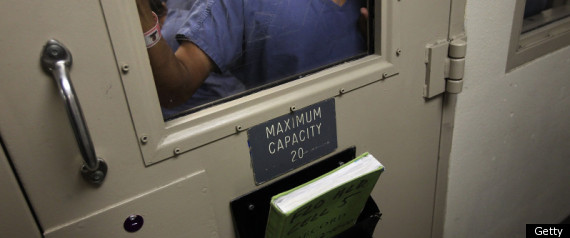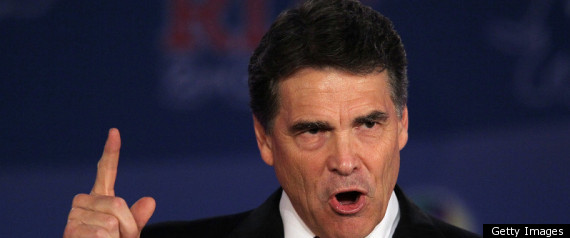When Rick Perry was asked by an audience member in Waterloo, Iowa earlier this month what he would do to rein in spending on entitlement programs if elected president, the Texas governor had a quick response: "Have you read my book,
Fed Up!? Get a copy and read it." Four days later, Perry's campaign had reconsidered its pitch; his communications director, Ray Sullivan,
issued a clarification to reporters that
Fed Up! was not intended to serve as a blueprint for the Perry presidency, and that the most radical ideas proposed within—the repeal of Social Security, Medicare, and the 16th Amendment—weren't meant to be serious proposals.
If you can't trust what he's written, you might do well to consider what he reads. Perry's reading list (cobbled together from interviews, tweets, and a little bit of guesswork), is a mix of tea party treatises, tracts on small-government, paperback thrillers, and owner's manuals for life—some more literal than others. Here's a sampling:
The Five Thousand Year Leap: 28 Great Ideas That Changed the World, by W. Cleon Skousen: Since Glenn Beck dusted it off, wrote a new foreword, and promoted it heavily in 2009, Skousen's treatise on the Constitution and the faith of our founders has become required reading on the far right. Skousen, whom the conservative
National Review once described as an "
all-around nutjob" argued that the Constitution was a direct descendant of Anglo-Saxon Common Law, which in turn was a descendant of the governing system of the ancient Israelites, which in turn came directly from God. To tie it all together, he floats the debunked theory that the Anglo-Saxons were themselves a (very) lost tribe of Israel.
For those looking to more fully understand the roots of Perry's brand of federalism,
The Five Thousand Year Leap is a handy starting point: Skousen
views the 17th Amendment, allowing for the direct election of senators, as a crushing blow to the balance between state and federal power—a position trumpeted by Perry in
Fed Up! Regulatory agencies like the EPA, which Perry reviles, are treated as the exclusive domain of the states. Even National Parks come under scrutiny from Skousen, who belives they lack constitutional standing. It's a minimalist approach to the Constitution that's radical even by the standards of todays conservatives; in another book,
The Making of America,
Skousen holds up the Supreme Court's decision in
Dred Scott v. Sanford as
a model of conservative jurisprudence. (The book was actually pulled from public schools in California due to its backwards views on race.)
Above all else, Skousen writes, America is a Christian nation, Biblically rooted. As
Perry told the Values Voters Summit in 2009 while discussing
The Five Thousand Year Leap, "He asserts that natural law, God's law, is the basis of our nation's laws." And it is God's law that will guide us back to prosperity.
 Writer Margaret Atwood hopes the outpouring of support for libraries by Toronto citizens will be a lesson for Mayor Rob Ford and his supporters on council as they consider other cuts to city services.
Writer Margaret Atwood hopes the outpouring of support for libraries by Toronto citizens will be a lesson for Mayor Rob Ford and his supporters on council as they consider other cuts to city services. 








